Progress in Chester County
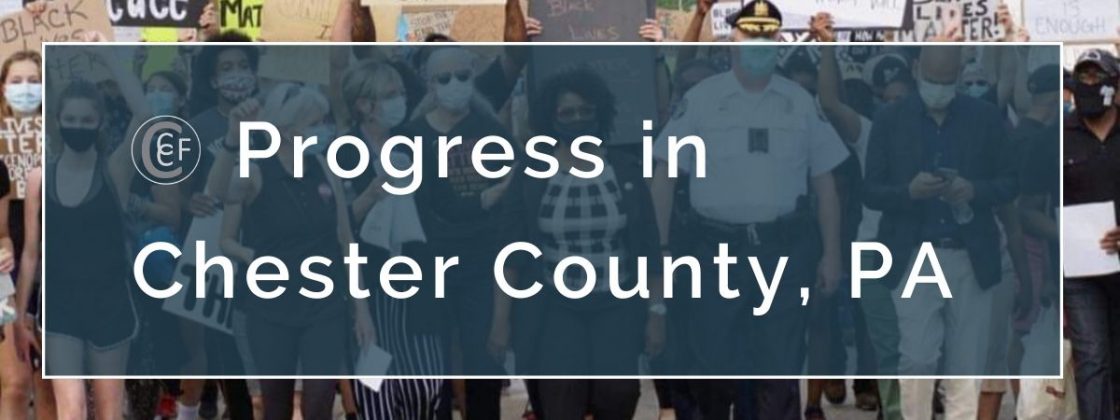
In response to the murder of George Floyd and countless other unarmed Black men and women, the West Chester Police Department released a statement to the public answering many concerns about police training and policies, including:
- de-escalation training
- use of chokeholds
- officer intervience in instances of excessive force
- use of body cams, and more
Understanding the Black Lives Matter Movement
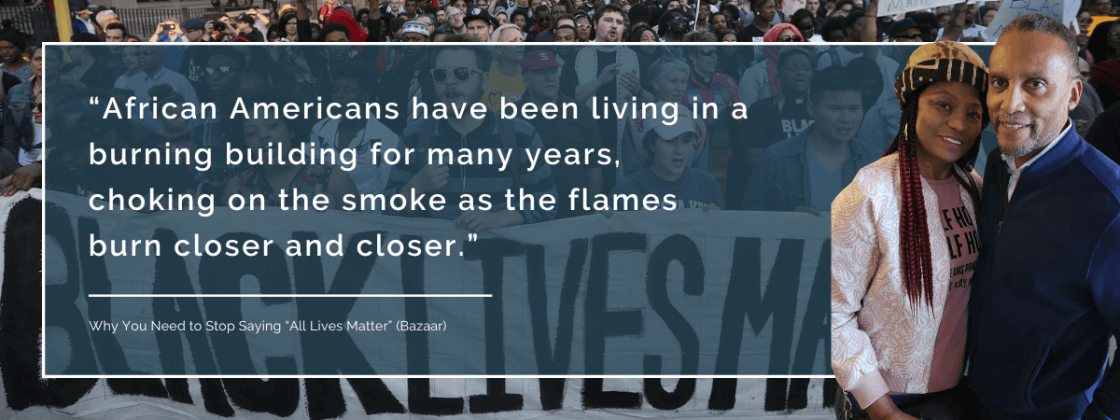
WHAT DOES BLACK LIVES MATTER MEAN?
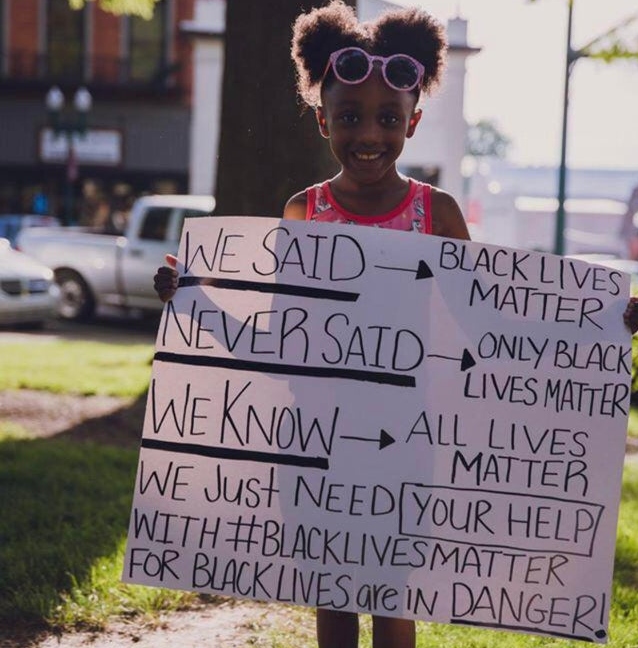
Black Lives Matter is not a term intended to exclude but rather a call for social change because of the continued discrimination, prejudice, and police brutality experienced by the Black community.
Black people are oppressed and underrepresented in society because the “majority of experiences here in America already tend to center and highlight whiteness and cater to its safety.”
BUT, DON’T ALL LIVES MATTER?
‘Black Lives Matter’ is not a phase intending to tear down or diminish the experiences and struggles of white populations in America. The Black Lives Matter movement “is trying to highlight that there is demonstrable evidence that black lives matter less than white lives to the criminal justice system (and the American government as a whole).”
Yes, all lives do matter but all lives are not being disproportionately threatened. All lives will not matter until the lives of all marginalized communities matter.
Every Time You Say “All Lives Matter” You Are Being an Accidental Racist (Huffpost)
TAKE ACTION AGAINST INJUSTICE
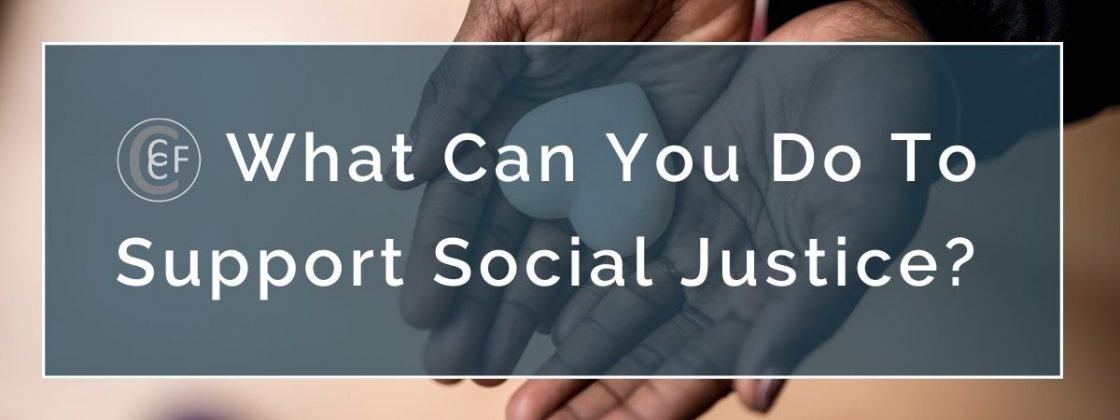
WHY IS VOTING ESSENTIAL FOR SOCIAL CHANGE?
Former President Barack Obama urges Americans to vote in the upcoming elections, “If we want to bring about real change, then the choice isn’t between protest and politics. We have to do both. We have to mobilize to raise awareness, and we have to organize and cast our ballots to make sure that we elect candidates who will act on reform.”
Obama reminds Americans of the power local and state leaders hold in enacting change, “The elected officials who matter most in reforming police departments and the criminal justice system work at the state and local levels.”
How to Make this Moment the Turning Point for Real Change (Barack Obama)
BLACK-OWNED BUSINESSES TO SUPPORT
20 Great Black-Owned Shops and Boutiques in Philadelphia (Visit Philly)
25 Black-Owned Businesses You Can Support (Oprah Mag l United Way)
77 Black-Owned Businesses to Support Right Now (The Strategist)
Black Owned Businesses in West Chester, PA (The Odd Bee)
Chester County, PA Black-Owned Businesses
Black Owned Businesses in Chester County, PA (Start Local)
FUNDS & ORGANIZATIONS FIGHTING FOR SOCIAL JUSTICE
Black Emotional and Mental Health Collective (BEAM)
Black Philly therapists are raising $15K to provide free mental health resources to people of color (WHYY)
The Bread and Roses Community Fund
Boris Lawrence Henson Foundation
Fund Racial Justice: Where to Donate
How to Support the Struggle Against Police Brutality
NAACP Legal Defense and Educational Fund, Inc.
Philanthropic Initiative for Racial Equity
LOCAL ORGANIZATIONS (Chester County)
Black Women of Chester County in Action
Chester County Opportunities Industrialization Center (CCOIC)
MLK CommUNITY of the Greater Kennett Area
EDUCATE YOURSELF ABOUT RACE

RESOURCES FOR EDUCATION
The first step in fighting for racial equality is educating yourself and your family on the history of racial abuse in America, and understanding why racial injustice is a prevailing issue in modern America.
11 movies that confront American racism (Vox)
15+ Tools and Resources to Challenge Racism (Compass Point)
Anguish and Action (Barack Obama)
Documentaries About Black History to Educate Yourself With (Marie Claire)
Listen to ‘1619,’ a Podcast From The New York Times (NY Times)
Talking About Race (National Museum of African American History & Culture)
Uncomfortable Conversations With a Black Man Pt: 1 (Emmanuel Acho)
You do not need to be Black to know that Black Lives Matter. (The Communications Network)
Your Black Colleagues May Look Like They’re Okay — Chances Are They’re Not (Refinery 29)
RESOURCES FOR EDUCATING CHILDREN
33 Books Featuring Black Heroes and Characters That Every Kid Should Read (The EveryMom)
How to Talk to Kids About Race and Racism (NBC)
Resources for Talking to Kids About Race (Center for Racial Justice in Education)
Talking to children after racial incidents (Penn GSE)
Talking to kids about discrimination (American Physiological Association)
Understanding the Protests
“Racial injustice just seems to be baked into the DNA of this country, periodically and throughout history there come these moments when people just can’t take it anymore.” Vox
WHY ARE PEOPLE PROTESTING?
The Black community has tried for hundreds of years to raise public and political awareness of the racial injustices that exist in America. They have peacefully walked in protest, they have shared personal stories of their experiences with racial abuse, they have supported leaders who promised to fight for their cause – but nothing has changed.
Now, “you see Black protesters in the age of Trump and coronavirus [as] people pushed to the edge, not because they want bars and nail salons open, but because they want to live. To breathe.”
Don’t understand the protests? What you’re seeing is people pushed to the edge (LA Times)
As explained by a professor of Afro-American and African studies at the University of Michigan, the protests represent “a whole generation of young people, black and white and brown, who understand that their future, the racial future of this country, is in real jeopardy right now, and I think that motivates people to take to the streets.”
Protests for Black rights and equality are nothing new. After Rodney King was brutalized by the LA police department in 1991, protests erupted in LA. When Martin Luther King, Jr. was murdered in 1968, America was filled with unrest and rioters took to the street in outrage.
“Protests keep happening precisely because white supremacy is never sufficiently reined in. It’s never seriously taken on by those with power. And so the people will continue to erupt.”
How today’s protests compare to 1968, explained by a historian (Vox)
Why They’re Protesting (NY Times)
George Floyd death: Why US protests are so powerful this time (BBC)
BUT, AREN’T PROTESTS TURNING INTO VIOLENT RIOTS?
People should not take advantage of these protests to loot and damage small businesses, nor should sports fan do the same when they parade through the city celebrating the victory of their hometown team.
A majority of the Black Lives Matter protests have been peaceful and many protesters have been condemning the violence of rioters taking advantage of the situation.
But, “the black community’s main concern…is whether their sons, husbands, brothers and fathers will be murdered by cops or wannabe cops just for going on a walk, a jog, a drive. Or whether being black means sheltering at home for the rest of their lives.”
“The racism virus infecting the country is more deadly than COVID-19.”
Don’t understand the protests? What you’re seeing is people pushed to the edge (LA Times)
As explained by the National Center for Family Philanthropy, “Officials paint the protesters as the cause of the problem. The vast majority of these protests have been peaceful, but nonviolent protest has never equated to peaceful protest.”
“Nonviolence is a powerful practice when these amazing Black, Brown, Native, Asian, White, cis, gay, trans, people with disabilities, young and old protesters solemnly assert their right to be, to breathe, to live free of humiliation, abject poverty, and domination. And in refusing to bow down, they so infuriate the police that those forces who claim to protect and serve us publicly show the world the violence they usually reserve only for those oppressed communities. Nonviolence is a strategy of making this state-sponsored violence visible.”
On the Precipice (National Center for Family Philanthropy)
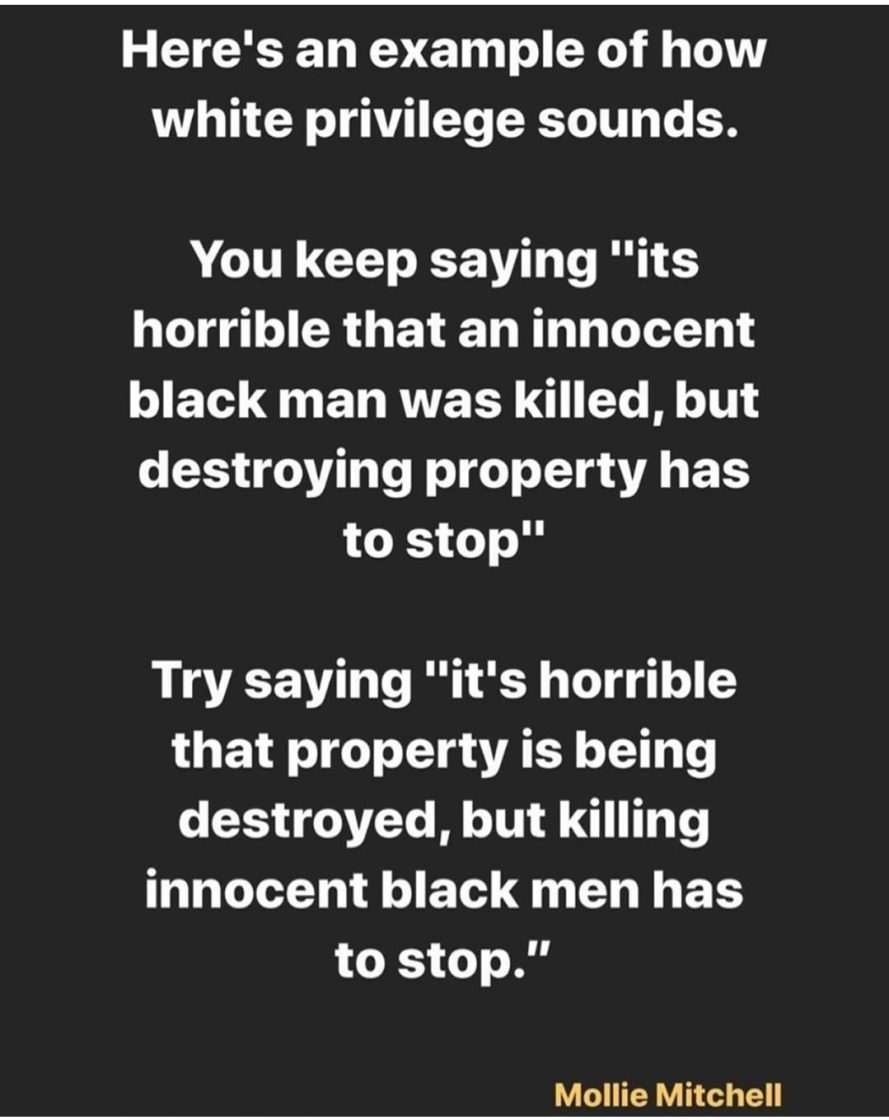
Understanding Police Brutality
“While police abuse and violence have the potential to harm anyone, as with virtually all of the other shortcomings of the criminal justice system, it disproportionately harms Black people.” The Washington Post
WHY IS POLICE BRUTALITY SUCH A PRESSING ISSUE FOR THE BLACK COMMUNITY?
Police brutality is an issue that disproportionately impacts the Black community. Thousands of Black men, women, and children have been targeted and killed by police because of the color of their skin. And many times, the officers who commit these acts of police brutality face no consequences for their actions.
“When white people see videos of unjust police abuse of a white person, it may make us angry, sad or uncomfortable, but most of us don’t see ourselves in the position of the person in the video.”
On the other hand,”when Black people see videos…their reaction is much more likely to be that could have been me — or my son, or friend or brother.”
White people can compartmentalize police brutality. Black people don’t have the luxury. (The Washington Post)
Tragic Death of George Floyd Reveals Continuing Problem of Police Violence (Equal Justice Initiative)
STATISTICS OF POLICE BRUTALITY
According to Mapping Police Violence, data collected between 2013 – 2019 shows:
- Black people are 3x more likely to be killed by police than white people.
- Unarmed Black people are 1.3x more likely to be killed by police compared to white people.
- 8 of the largest city police departments kill Black people at a higher rates than US murder rates.
In addition, according to data collected by BBC:
- African-Americans are more likely to get fatally shot. In 2019, although African-Americans made up less than 14% of the population, they accounted for more than 23% of the just over 1,000 fatal shootings by the police.
- African-Americans are arrested at a higher rate for drug abuse, even when the amount of drugs they used/carried where less than their white counterparts.
- More African-Americans are imprisoned. In 2018, African-Americans made up around 13% of the US population, but represented almost a third of the country’s prison population.
RECENT PROTESTS AND POLICE BRUTALITY
While protests originally erupted over the murder of George Floyd, they are at their core an expression of “a rage born of despair. Despair that their government has failed to provide one of the most fundamental protections in the Constitution: the right to life, and to not be deprived of that life without due process of law.”
Protestors are fighting for a world where ‘bad cops’ are punished for using excessive force and brutality against Black men, women, and children.
Law enforcement’s reaction to these protests – using tear gas, mace, and rubber bullets on peaceful protestors and journalists – has sparked another demand: “They want a country where the police protect the right of their fellow Americans to gather in public and seek redress for their grievances.”
When condemning the violence of rioters and looters, remember that “it’s sometimes the police themselves who make matters worse by instigating physical confrontations, manhandling elderly people and pepper-spraying children. And wherever violence has broken out — whether committed by law enforcement, outside agitators or rioters and looters — it has provided an excuse to shift the debate away from the sources of the original despair.”
America’s Protests Won’t Stop Until Police Brutality Does (NY Times)
Professor Thompson at the University of Michigan urges us all to think about this: “If you have 75+ cities burning, what does it say that from the leadership at every level, the only response has been more police… rather than imagining a different model, like peacekeeping forces, working with community organizations to bring calm.”
How today’s protests compare to 1968, explained by a historian (Vox)
Journalists Around The Country Have Been Injured And Arrested By Police While Covering Protests (Buzzfeed)
Philadelphia protesters gassed on I-676, leading to ‘pandemonium’ as they tried to flee (Philadelphia Inquirer)
Understanding White Privilege
“[White privilege is] the power to remain silent in the face of racial inequity…It’s knowing that you and your humanity are safe. And what a privilege that is.” Teaching Tolerance
WHAT IS WHITE PRIVILEGE?
White privilege is the build-in advantage white people are given in life because of the color of their skin. White privilege does not mean white people have not struggled, it means race has not been an inhibiting factor for opportunity and equality in life.
Black communities living “without this privilege, face the consequences of racial profiling, stereotypes and lack of compassion for their struggles.”
What Is White Privilege, Really? (Teaching Tolerance)
White privilege “takes so many forms it’s impossible to list them all here. But in aggregate it is the accumulated privilege of centuries of racist policies in every aspect of American life — from criminal justice to housing to healthcare.”
Race, Equity, and Unavoidable Challenges for Philanthropy (Center for Effecive Philanthropy)
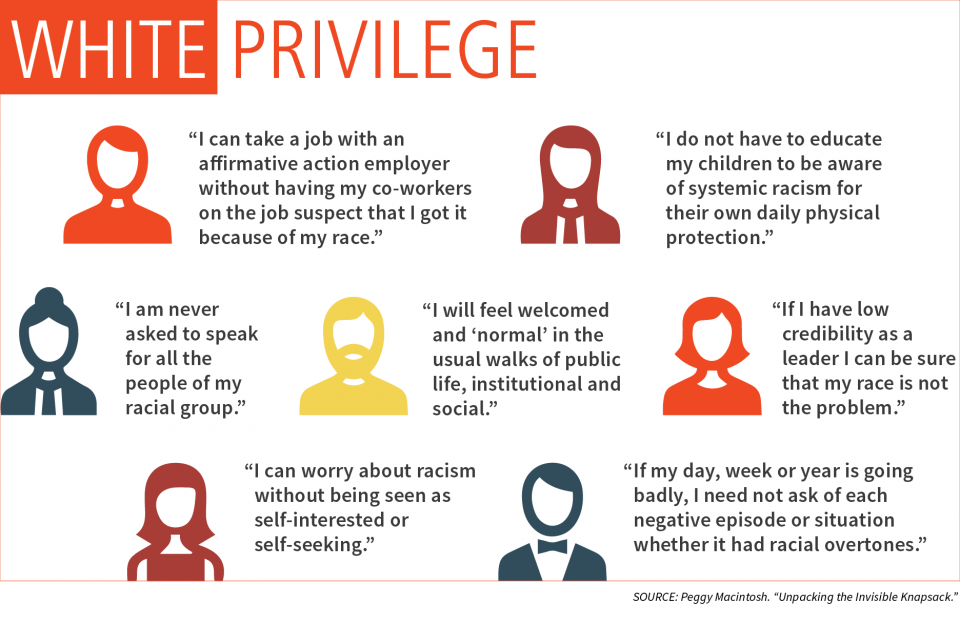
A Guide to White Privilege (Courtney Ahn Design)
I grew up in poverty. Here’s why I recognize my white privilege (Tom Rietz |TED)
DOES HAVING WHITE PRIVILEGE MEAN I’M RACIST?
No. The fact that a white person benefits from white privilege does not make them racist.
White privilege is an ingrained part of society; there is no escaping it. However, not acknowledging white privilege, and working to remove the systems in place that allow skin color to be a barrier for opportunity, contributes to racial injustice.
What Is White Privilege, Really? (Teaching Tolerance)
“Racism is the foundation of the society we are in. And to simply carry on with absolutely no active interruption of that system is to be complicit with it,” explains Dr. Robin DiAngelo, author of White Fragility: Why It’s So Hard For White People To Talk About Racism.
She asserts, “it must become uncomfortable for white people to continue to benefit from racist systems” and urges us all to resist the status quo of racism in America.
‘There Is No Neutral’: ‘Nice White People’ Can Still Be Complicit In A Racist Society (NPR)
WHO IS THE WHITE MODERATE?
In his Letter from Birmingham Jail Dr. Martin Luther King Jr. calls the “the moderate” the biggest barrier for equity and justice for Black people and thus for us all. In relation to current events, the white moderate is “the people who are worried about property damage, who insist “not all cops” are bad, who loudly proclaim that rioting is not the answer. Even as the police continue to murder Black people for centuries without any repercussion, these folks continue to prioritize this “negative peace” and lack of tension to actual justice.”
Have nonprofit and philanthropy become the “white moderate” that Dr. King warned us about? (Nonprofit AF)


